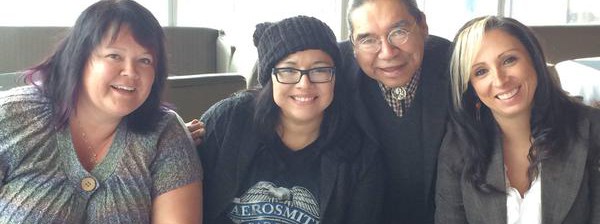Indigenous Identity and Citizenship


This research project funded by SSHRC aims to answer the following: (1) what are the specific ways in which colonial laws and policies have changed Indigenous conceptions of what is and is not “traditional” in relation to their Indigeneity and citizenship criteria, (2) given that many First Nations want to amend their membership codes or create new ones, what specific factors should be taken into account and how might those decision-making processes be designed to reflect both historical and modern realities, (3) a detailed analysis of First Nation membership codes that exist now to identify possible regional or cultural trends and whether anything contained in current codes offer useful options for other First Nations; (4) identifying best practices in terms of community engagement, consultation and decision-making to overcome significant hurdles like low turn-outs to community information sessions, and the severe and chronic under-funding by government to First Nations for capacity building, governance reform and law-making; (5) identify key risks to First Nations with regards to their rights given the slow pace at which the recognition, respect and implementation of treaties, Indigenous title, and self-determination arrangements unfold. I, predict, based on past research, that community members and leaders alike will have several objectives in mind when thinking about membership codes that address their needs, which our research will reflect through our communication with these communities: (1) undoing past discrimination and harms, (2) protecting the interests of future generations, (3) reflecting traditional aspects of their Indigeneity and citizenship, and (4) protecting their lands and resources for their people.
What is important to note about this research is that it will not repeat the plethora of research that exists on the problems with Indian Act registration. Aside from my book, many articles, reports and studies have been done on the issue of status. Too often research gets traps in considering the same issues without advancing to practical, community-based solutions. Similarly, this research will not repeat the baseline research conducted for my book: Beyond Blood: Rethinking Indigenous Identity, nor will it replicate the other related works (Gover, Lawrence, Garroutte, McIvor, Alfred, Corntassel, Palmater). We know what the issues are regarding federal control of Indianness (funding, legislative extinction, gender inequality) and we know what kinds of membership codes exist and the current problems within some of those codes (exclusionary, discrimination, etc). The issue is how do we move forward with rules that are fair, reflective of traditional values and laws, and make sense in a modern context with all the complexities and effects of colonization.
This project aims to explore the relationship between traditional and Indian Act forms of governance systems as it relates specifically to citizenship. To this end, we are working with the Mi’kmaw First Nation of Membertou in Sydney Nova Scotia to consider how nation-based conceptions of Mi’kmaw citizenship relate or translate at the community level in terms of First Nation (band) membership. We are also interested in the multiple levels of complexity faced by the Mi’kmaw Nation whose territory encompasses multiple provinces and two countries.
This research seeks to educate, empower, rebuild capacity, and strengthen the bonds between traditional Indigenous knowledge and modern realities to help support strong, self-determining Indigenous Nations which have happy, healthy citizens who are culturally, physically, socially, politically and legally safe in all aspects of their communal and individual lives. The current insecurity of identity, membership and citizenship created through government control will be addressed as part of this overall goal. Citizenship and identity are very current issues for First Nation communities and many feel the issue to be so complex as to inhibit dialogue. We aim to create safe spaces for communities to talk about issues of membership and citizenship, learn about the historical and legal dimensions of federal control over Indigenous identities, and look for solutions in traditional Indigenous knowledges, legal traditions and values. In this way, the project will be a true exchange of knowledges and skills.